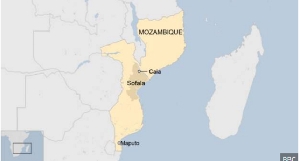Opinions of Saturday, 7 November 2015
Columnist: Amasaba, Aluizah
Early Childhood Development Centres – A way to support working mothers
Early Childhood Development Centres – A way to support working mothers and their communities
The 1992 constitution of the Republic of Ghana advocates and advances the rights of women.
Under Chapter Five, 27(2) the heading “Women’s Right” unambiguously states,
Facilities shall be provided for the care of children below school-going age to enable women, who have the traditional care for children, realise their full potential.
It is therefore an obligation for the Ministry of Education, the Ghana Education Service and other stakeholder institutions to uphold this constitutional provision to provide Early Childhood Development Centers (ECDC) at work places for working mothers to keep their children there. This will enable them to engage in their career duties without unnecessary disruptions.
In adherence to this national political framework, ActionAid Ghana’s Country Strategic Paper five (CSP V) has declared two of its Mission Objectives (MOS) that will address this clause of the constitution.
AAG’s Mission Objective two (MO2), aims to “…reduce women’s unpaid care work”.
Mission objective three (MO3), which campaigns for the education of young people also advances initiatives works to “…promote access to quality education for boys and girls…”
Child Development expert Michael Meaney in his studies of Epigenetics and Biological Definitions of Genes And Environmental Interactions notes that, “Environmental factors have the ability to alter inherited traits” of children, because children in their formative years absorb so many ideas and practices around them, hence the need for adults to provide children with the requisite social training that will shape them into befitting adult members of society.
In 2015 alone, AAG constructed 25 school infrastructural projects across its operational regions, including 2 Early Childhood Development Centers (ECDC). One of the centres was built in Gbee near Talensi in the Talensi district of the Upper East Region, and the other in Bolni, near Bimbilla in the Nanumba North district in the Northern Region.
Bolni and Gbee are two remote and deprived communities where women play a significant role in the tiling, harvesting and marketing of farm produce. The construction of an ECDC in these communities comes with two immediate solutions. First, it is making the school infrastructure accessible to the local population and providing a productive environment where children will engage in social and development activities, enabling them to be more prepared when formal schooling begins.
Secondly, the ECDC coupled with well-trained caregivers to attend to the children, will bring relief to mothers so that they will be able to comfortably undertake their domestic chores. The ECDC serves as a learning center for children, as it will provide the opportunity for children to begin engaging in social activities in their early development stages. In order to reduce the amount of unpaid care work that is demanded of women in Ghana, it is essential that child care options are made available for all mothers, so that they do not have to compromise either their paid work or the care given to their children.
ActionAid works with deprived communities to ensure that mothers of all ages are able to contribute to their communities and that they are treated with the equality and dignity that they deserve. The purpose of the ECDC is to ensure that young children are provided for, but most importantly, that women are not unfairly burdened with unpaid care work, and are solely responsible for the care of their children. Furthermore, the ECDC ensures that women can make a meaningful impact in their socio-political and cultural environment and also provide children with the quality surroundings that will shape their life for the future.
It is essential that during the formative years of childhood, children receive appropriate care, education and social exposure. This learning environment is crucial for their future growth and development. In a 2012 study conducted by UNICEF “Equalities in Early Childhood Development, Evidence from Multi Indicator Cluster Surveys” the organisation explains that, “Early childhood care and education make up the foundation of quality basic education…Socially adjusted children are more likely to grow into economically productive adults.”
The ECDC is providing an amiable school environment, which will provide the necessary supervised care and skill development for children. This is crucially important for their own development, the development of their communities and national development. It could be argued that this learning environment is addressing and finding solutions to imminent future problems.
The UNICEF study states that due to “the exceptionally strong influence of early experiences on brain architecture, the first years of life are a time of tremendous opportunity and equally great vulnerability.” If used correctly, these formative years have the potential to be hugely influential and could make a great difference in these rural communities. By gaining access to early education, students have the opportunity to excel both in the classroom and in their social environment. If children in one community collectively experience this opportunity for growth, the impact within their community will be unprecedented.
Not only can the ECDC’s greatly benefit young children and their future communities, but it also enables current communities to be more productive as mothers with young children will be able to commit themselves to their profession, and should not be exhausted by additional unpaid care work, such as caring for their children.
At ActionAid, we are excited about the prospects of what these ECDCs could mean for communities in the most vulnerable and marginalised positions. For too long, the burden of caring for children has unfairly fallen on women, and prevented them from providing for their own economic needs, and from contributing to the needs of their respective communities.
While this is a start, ending the disproportion of unpaid care work requires a greater contribution from the principal duty bearers, the government e.g. We hope that CSO’s and state institutions will follow our lead and take the necessary steps to support women, promote their careers and respect their valuable time.
Aluizah Amasaba
Communications Support Officer
ActionAid Ghana
Upper East Region
[ActionAid Ghana Day Care Centre that cares for children whilst mothers are working]












